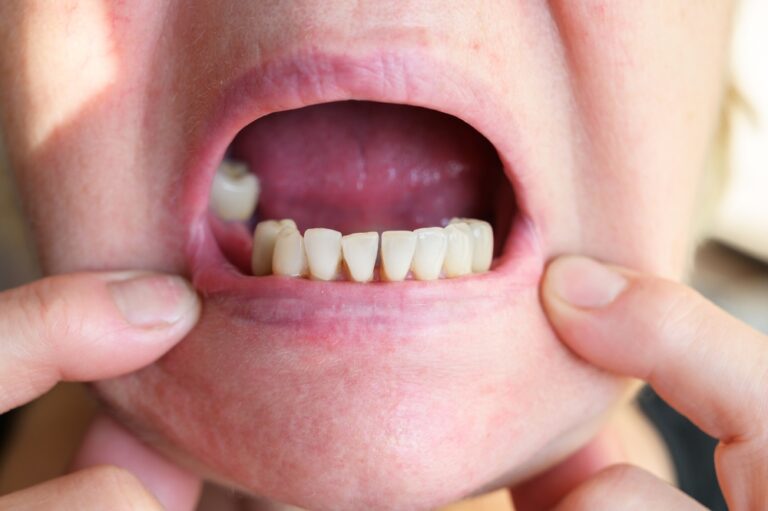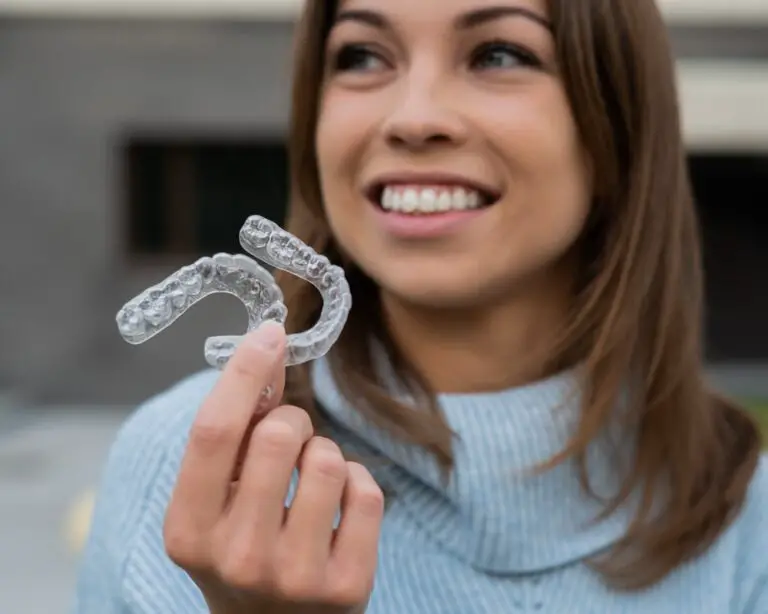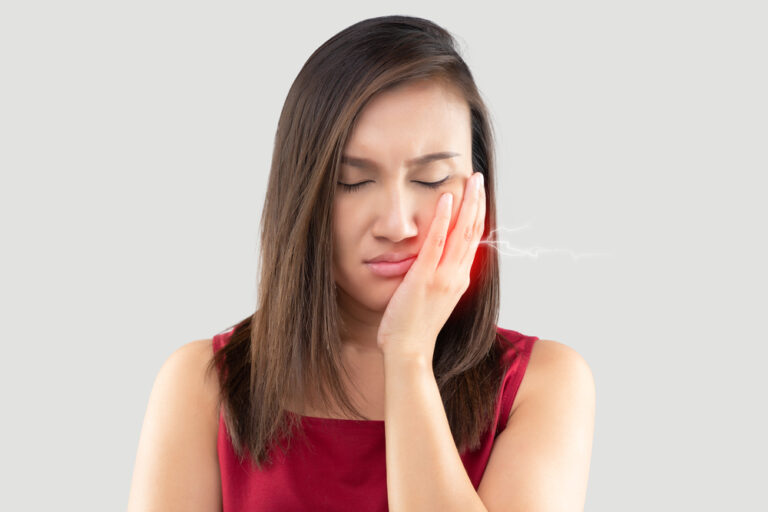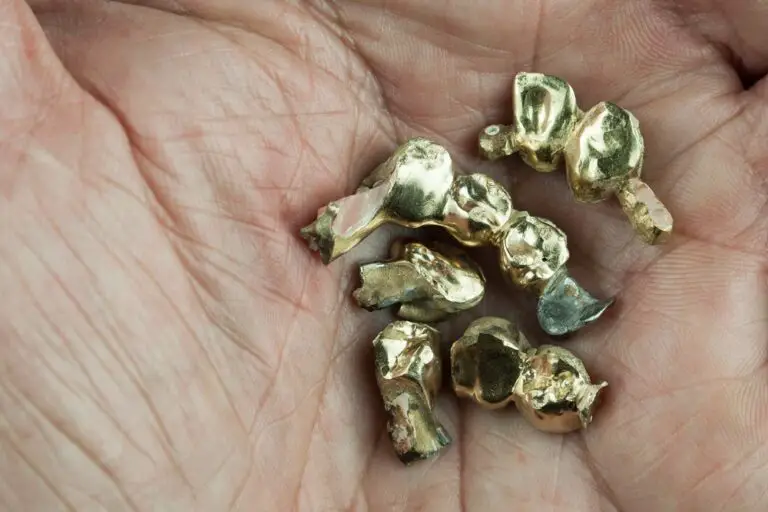Tooth sensitivity is a common problem that many people experience. If you feel a sharp, stinging sensation in your teeth when you eat or drink something hot, cold, sweet, or sour, you may be experiencing tooth sensitivity. This sensation can be uncomfortable and even painful, but there are ways to manage it.
Understanding the causes of tooth sensitivity is important in order to prevent and treat it. Some common causes include tooth decay, gum disease, teeth grinding, and dental procedures. By addressing these underlying issues, you can alleviate tooth sensitivity and improve your overall oral health.
Key Takeaways
- Tooth sensitivity is a common problem that can cause discomfort and pain when eating or drinking.
- Common causes of tooth sensitivity include tooth decay, gum disease, teeth grinding, and dental procedures.
- Preventing and treating tooth sensitivity involves addressing underlying issues and maintaining good oral hygiene practices.
Understanding Tooth Sensitivity
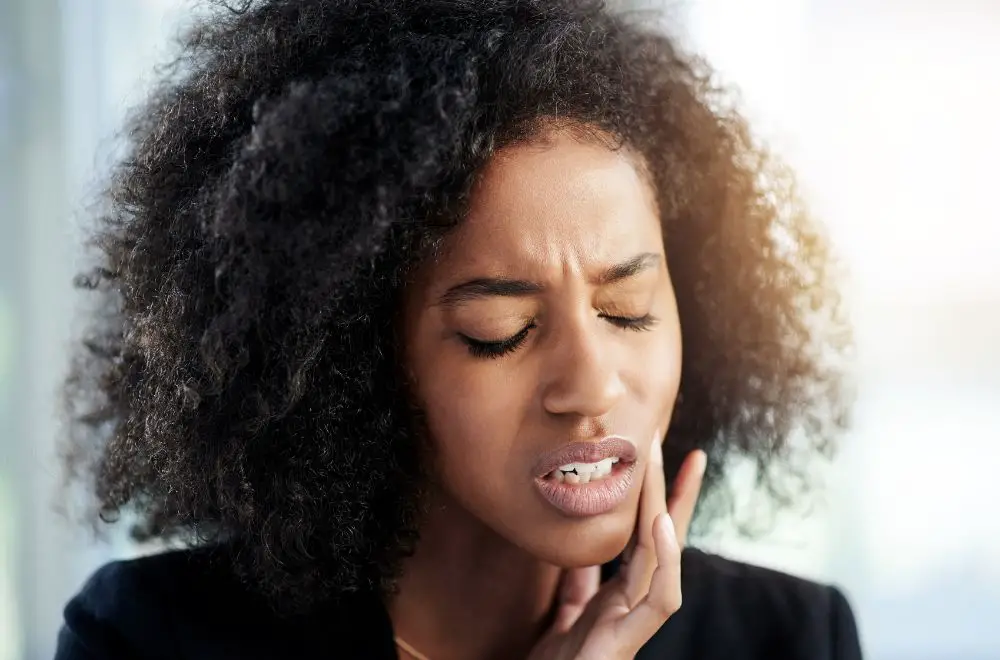
The Role of Dentin
Dentin is the layer of the tooth that sits beneath the enamel. It is made up of tiny tubules that are filled with nerve endings. When the dentin is exposed, either due to enamel erosion or gum recession, the nerve endings become exposed as well, leading to tooth sensitivity.
Impact of Enamel Erosion
Enamel is the hard, protective layer that covers the tooth. When enamel erodes, either due to acidic foods or drinks, tooth decay, or aggressive brushing, the underlying dentin becomes exposed. This can lead to tooth sensitivity.
To prevent enamel erosion, it is important to avoid consuming too many acidic foods and drinks, such as citrus fruits and soda. It is also important to brush your teeth gently with a soft-bristled brush and fluoride toothpaste.
In summary, tooth sensitivity is often caused by the exposure of the dentin layer of the tooth due to enamel erosion or gum recession. Taking steps to protect the enamel and practicing good oral hygiene can help prevent tooth sensitivity.
Common Causes of Tooth Sting

If you have ever experienced a sudden, sharp pain in your tooth when eating or drinking, you know how uncomfortable it can be. Tooth sensitivity, or tooth sting, is a common dental problem that affects millions of people worldwide. Here are some of the most common causes of tooth sting:
Cold or Hot Food and Drinks
One of the most common causes of tooth sting is exposure to cold or hot food and drinks. This can happen when the enamel on your teeth is worn down, exposing the sensitive dentin underneath. When you eat or drink something cold or hot, the temperature change can cause a sudden, sharp pain in your tooth. To reduce tooth sting caused by temperature changes, try using a straw to drink cold beverages and avoid eating or drinking extremely hot or cold items.
Sweet or Acidic Food and Drinks
Another common cause of tooth sting is exposure to sweet or acidic food and drinks. When you consume sugary or acidic substances, the bacteria in your mouth produce acid that can erode your tooth enamel, leading to tooth sensitivity. To reduce tooth sting caused by sweet or acidic substances, try to limit your intake of sugary and acidic foods and drinks, and brush your teeth with fluoride toothpaste after consuming them.
In conclusion, tooth sting can be caused by a variety of factors, including temperature changes and exposure to sugary or acidic substances. If you are experiencing tooth sensitivity, it is important to talk to your dentist to determine the cause and find an appropriate treatment plan.
How Tooth Decay Contributes to Sting
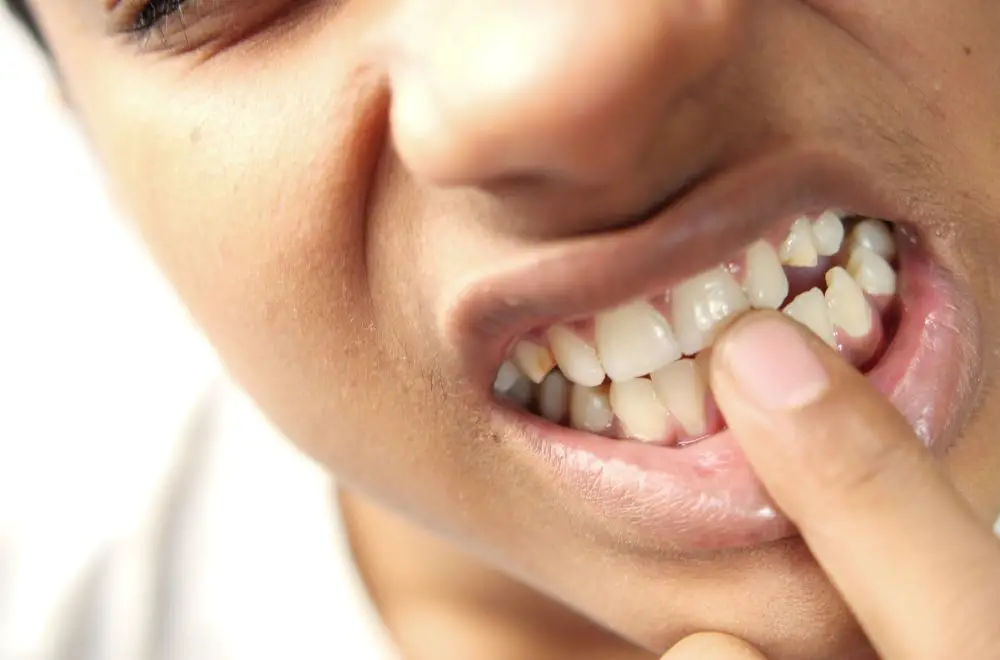
Tooth decay, also known as dental caries, is a common dental problem that can cause a variety of symptoms, including toothache, sensitivity, and stinging pain. Tooth decay occurs when the bacteria in your mouth produce acid that erodes the enamel, the hard outer layer of your teeth. As the enamel wears away, the underlying dentin becomes exposed, which can lead to tooth sensitivity and pain.
When tooth decay is left untreated, it can progress to more advanced stages, which can cause even more pain and discomfort. Here are a few ways in which tooth decay can contribute to stinging pain when you eat or drink:
- Enamel erosion: As the enamel wears away, the dentin becomes exposed, which can cause sensitivity and stinging pain when you eat or drink hot, cold, sweet, or acidic foods and drinks.
- Cavities: When tooth decay progresses to the point where it creates a hole or pit in your tooth, it’s called a cavity. Cavities can trap food and bacteria, which can cause further decay and infection, leading to more pain and discomfort.
- Infection: If tooth decay is left untreated, it can progress to the point where it reaches the pulp, the soft tissue inside your tooth. When the pulp becomes infected, it can cause severe pain and sensitivity, especially when you eat or drink.
To prevent tooth decay and the stinging pain that comes with it, it’s important to practice good oral hygiene, such as brushing your teeth twice a day, flossing daily, and visiting your dentist regularly for cleanings and checkups. If you’re experiencing stinging pain when you eat or drink, it’s important to see your dentist as soon as possible to prevent further damage and pain.
Gum Diseases and Tooth Sting

Gum diseases can cause tooth sting when eating or drinking. Gingivitis is a common gum disease that causes irritation, redness, and swelling of the gums. Poor oral hygiene is the most common cause of gingivitis. Good oral health habits, such as brushing at least twice a day, flossing daily, and visiting a dentist regularly, can help prevent gingivitis and other gum diseases.
Periodontitis is a more serious gum disease that can cause tooth loss. It is a serious gum infection that damages the soft tissue around teeth. Without treatment, periodontitis can destroy the bone that supports your teeth. Periodontitis is common but can usually be prevented by maintaining good oral hygiene and visiting a dentist regularly.
If you have gum disease, you may experience tooth sting when eating or drinking. This is because the gums become inflamed and sensitive, making it painful to eat or drink. You may also experience bleeding gums, bad breath, and loose teeth.
If you suspect that you have gum disease, it is important to see a dentist as soon as possible. Your dentist can diagnose and treat gum disease to prevent further damage to your teeth and gums.
In summary, gum diseases such as gingivitis and periodontitis can cause tooth sting when eating or drinking. Maintaining good oral hygiene and visiting a dentist regularly can help prevent gum diseases and their associated symptoms. If you suspect that you have gum disease, it is important to see a dentist as soon as possible to prevent further damage to your teeth and gums.
The Effect of Tooth Grinding
Tooth grinding, also known as bruxism, is a common condition that affects many people. It is the act of clenching or grinding one’s teeth, usually during sleep. While mild bruxism may not require treatment, severe and frequent bruxism can lead to various problems, including jaw disorders, headaches, damaged teeth, and other issues.
One of the effects of tooth grinding is tooth sensitivity. When you grind your teeth, the enamel on your teeth can wear down, exposing the sensitive dentin underneath. This can cause your teeth to become more sensitive to hot and cold temperatures, as well as sweet and acidic foods and drinks.
In addition to tooth sensitivity, tooth grinding can also cause tooth pain. This is because the constant pressure and grinding can irritate the nerves in your teeth, leading to pain and discomfort. If left untreated, tooth grinding can also lead to tooth decay, gum disease, and even tooth loss.
It is essential to seek treatment if you suspect that you are grinding your teeth. Your dentist can examine your teeth and jaw and recommend appropriate treatment options, such as a mouthguard or relaxation techniques. By addressing tooth grinding early on, you can prevent further damage and maintain good oral health.
Influence of Dental Procedures
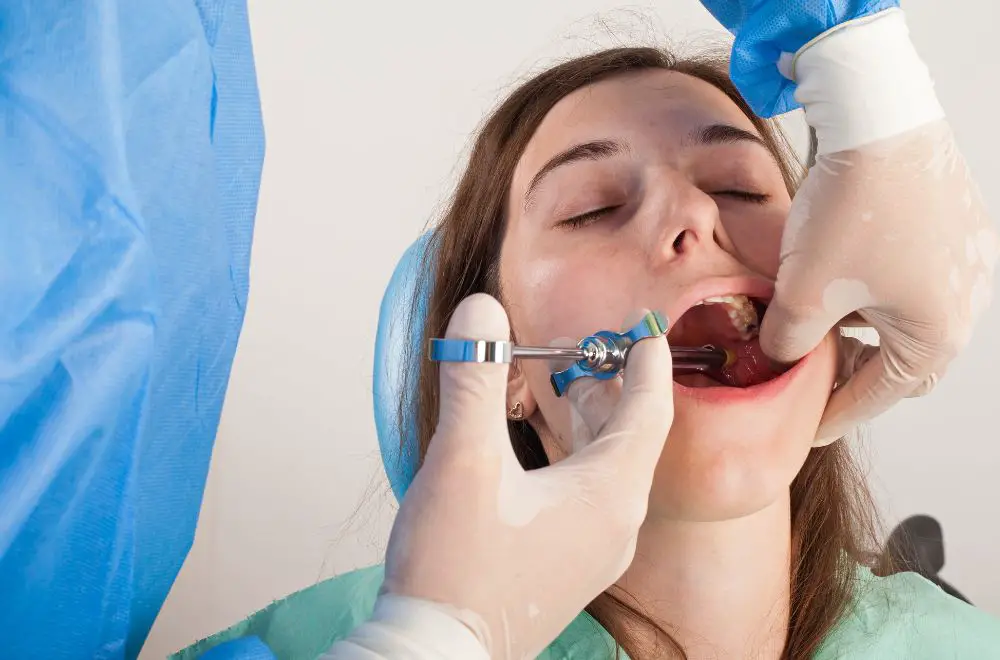
Dental procedures can also cause tooth sensitivity. Some of the procedures that can lead to tooth sensitivity include:
- Teeth whitening: The chemicals used in teeth whitening procedures can cause temporary sensitivity in some people.
- Dental fillings: After getting a dental filling, it is common to experience some sensitivity. This is because the filling material can irritate the nerve endings inside the tooth.
- Dental crowns: Some people may experience sensitivity after getting a dental crown placed. This is because the crown may be placed too close to the nerve endings inside the tooth.
- Dental cleanings: Dental cleanings can sometimes cause temporary sensitivity, especially if you have not had a cleaning in a while.
If you experience sensitivity after a dental procedure, it is important to talk to your dentist. They may recommend using a desensitizing toothpaste or other treatments to help alleviate the sensitivity. In some cases, they may need to adjust the dental work to reduce the sensitivity.
Preventing Tooth Sting
Proper Oral Hygiene
Maintaining good oral hygiene is one of the most effective ways to prevent tooth sting. Brush your teeth twice a day with fluoride toothpaste and floss at least once a day. Use a soft-bristled toothbrush to avoid damaging your teeth and gums. Brush gently for two minutes, making sure to clean all surfaces of your teeth, including the front, back, and chewing surfaces.
In addition to brushing and flossing, you should also use mouthwash to kill bacteria and freshen your breath. Choose a mouthwash that contains fluoride to help strengthen your teeth and prevent tooth decay.
Dietary Modifications
Making some dietary modifications can also help prevent tooth sting. Avoid consuming sugary and acidic foods and drinks, such as soda, candy, and citrus fruits. These foods and drinks can erode your tooth enamel and cause sensitivity.
Instead, opt for a diet rich in calcium and vitamin D, which can help strengthen your teeth and prevent tooth decay. Foods like milk, cheese, and yogurt are excellent sources of calcium and vitamin D.
You can also consider using toothpaste designed for sensitive teeth, which contains ingredients that can help block the transmission of pain signals to the nerves in your teeth.
By following these simple tips, you can prevent tooth sting and keep your teeth healthy and strong.
Treatment Options
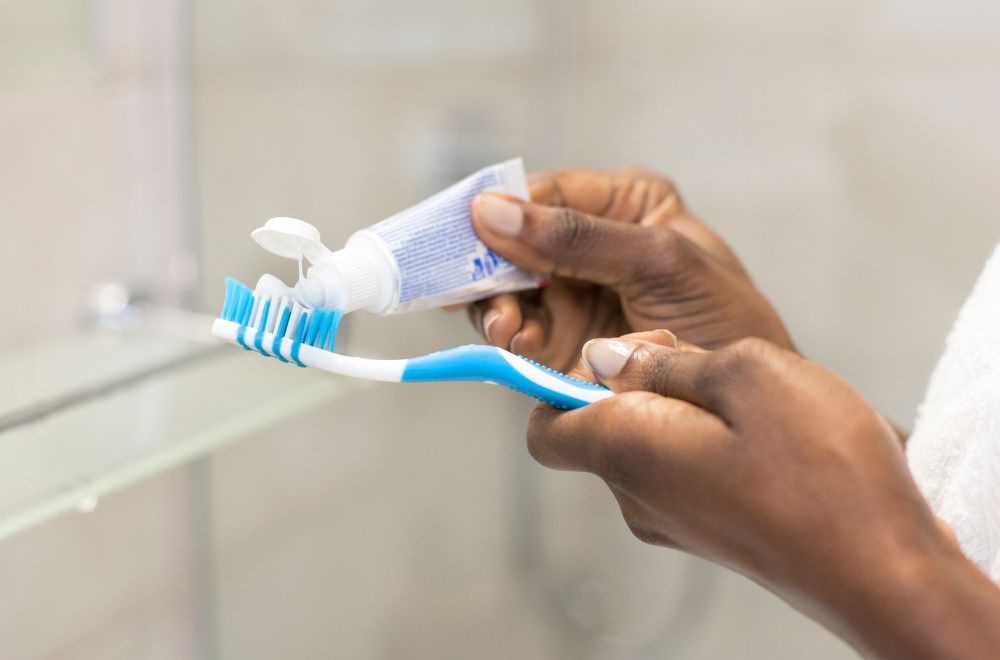
If you experience tooth sensitivity, there are several treatment options available to help alleviate your discomfort. Two common methods are using desensitizing toothpaste and undergoing specific dental procedures.
Desensitizing Toothpaste
Desensitizing toothpaste can help reduce tooth sensitivity. These toothpaste brands contain compounds that help block pain signals from reaching the nerves in your teeth. You can find these toothpaste brands over-the-counter at your local pharmacy or grocery store.
When using desensitizing toothpaste, it’s important to note that it may take several uses before you notice a significant reduction in sensitivity. Also, be sure to use the toothpaste as directed by the manufacturer, which usually involves applying the toothpaste directly to your teeth and leaving it on for several minutes before rinsing.
Dental Procedures
If you have severe tooth sensitivity, your dentist may recommend specific dental procedures to help reduce your discomfort. Some common procedures include:
- Fluoride treatments: Your dentist may apply fluoride directly to your teeth to help strengthen the enamel and reduce sensitivity.
- Dental bonding: This procedure involves applying a tooth-colored resin to the affected teeth to help reduce sensitivity.
- Gum grafting: If your tooth sensitivity is caused by receding gums, your dentist may recommend gum grafting to help protect the roots of your teeth and reduce sensitivity.
It’s important to note that dental procedures can be expensive and may not be covered by insurance. Be sure to discuss all options and associated costs with your dentist before making a decision.
Frequently Asked Questions
How to treat cold sensitive teeth
If you have cold sensitive teeth, there are several treatments available. These include using a desensitizing toothpaste, applying a fluoride gel, or having a dental bonding agent applied to the sensitive areas of your teeth.
Lingering tooth pain after eating
If you experience lingering tooth pain after eating, it could be a sign of a cavity or an infected tooth. You should see a dentist to determine the cause of your pain and receive appropriate treatment.
Tooth hurts when eating but no cavity
If your tooth hurts when eating but you don’t have a cavity, it could be due to gum disease, a cracked tooth, or enamel erosion. It’s important to see a dentist to determine the cause of your pain.
Does tooth sensitivity to cold mean root canal
Tooth sensitivity to cold does not necessarily mean that you need a root canal. However, if your tooth is severely damaged or infected, a root canal may be necessary to save the tooth.
Why are my teeth sensitive all of a sudden
Teeth can become sensitive all of a sudden due to a variety of reasons, including gum recession, tooth decay, or a cracked tooth. It’s important to see a dentist to determine the cause of your sensitivity.
How do you get rid of a stinging tooth
To get rid of a stinging tooth, you should see a dentist to determine the cause of your pain and receive appropriate treatment. This may include using a desensitizing toothpaste, applying a fluoride gel, or having a dental bonding agent applied to the sensitive areas of your teeth.

